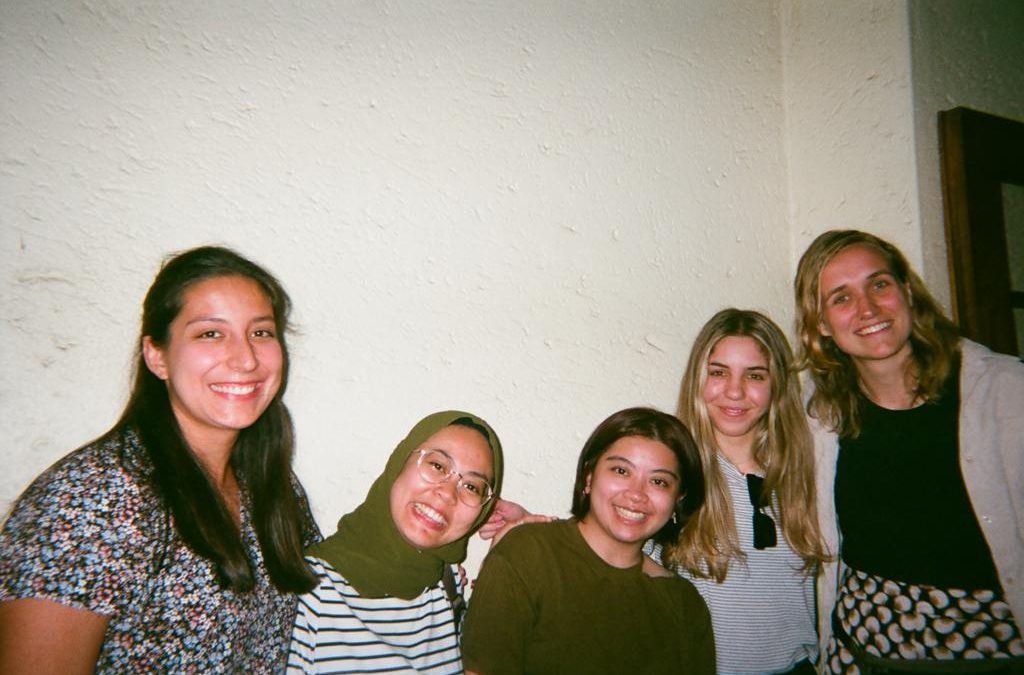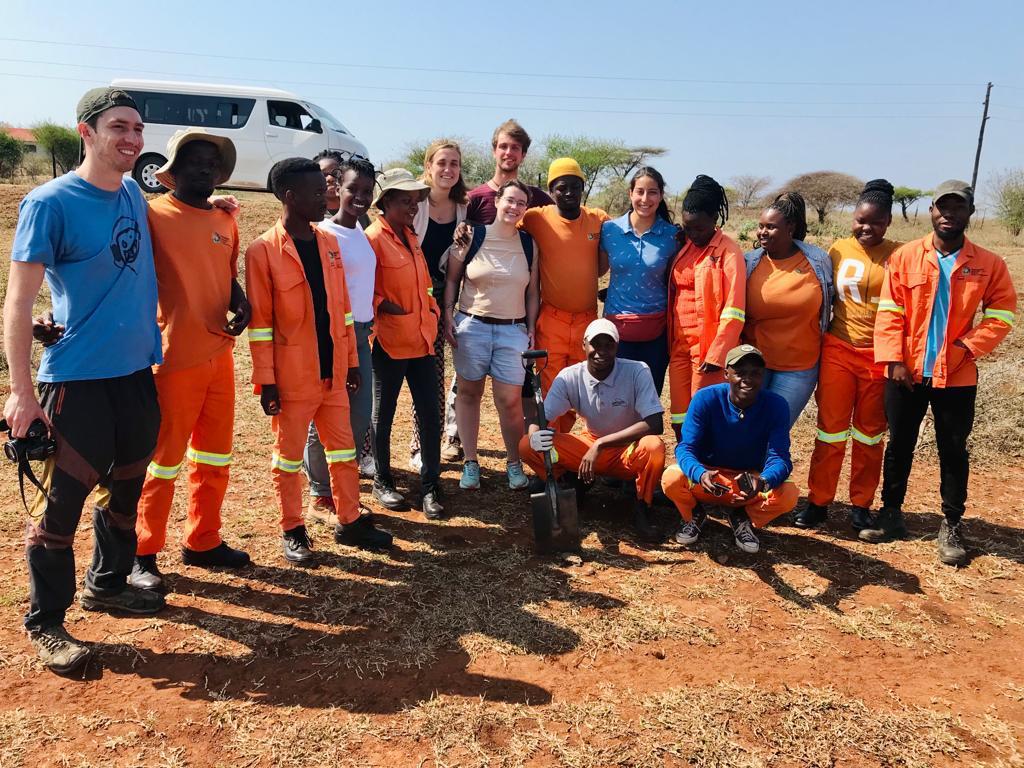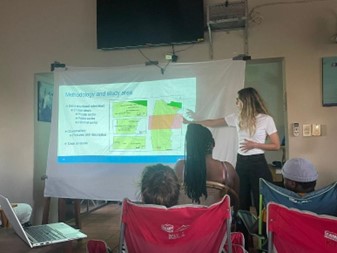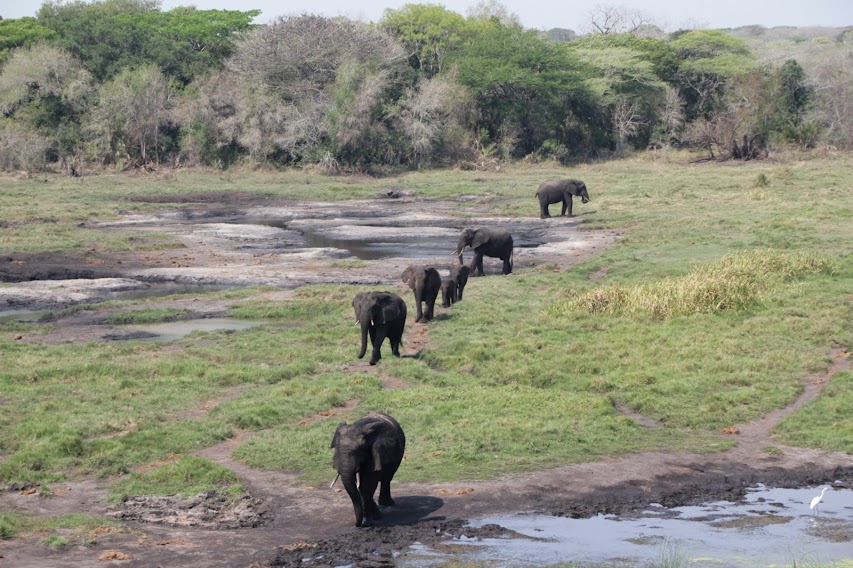By Aitana Ramirez de Arellano Santiago, Anna Larissa Maria Zeta Bonifacio, Auzora Kirana Fidari Pratopo, Daniele Makulavicǐūtė.
Preparing for Living Lab 2022
Effective waste management is a big challenge in KwaZulu-Natal province (South Africa). It remains a complex issue with many understudied aspects, and it was the research topic to which three mapping teams of Living Lab 2022 devoted themselves.
While the first team mapped the locations and volumes of different waste types (plastic, glass, metal, etc.) through observations on the field, and the second team visited and interviewed households regarding their waste disposal practices, our charming group focused on the context of waste governance. Our goal was to understand the practices of many different local actors involved in managing waste and their relationships with each other. To do this, we would interview public sector members, including the different levels of government (local, district, provincial, and national), private businesses, informal waste pickers, and NGOs.
Since we were going to research governance in a region we had never been to, we wanted to read and learn as much as possible about the state of waste management in South Africa, in the province of KwaZulu-Natal. Specifically in the local municipalities of Jozini and uMhlabuyalingana, to which the Ndumo Game Reserve belongs.
Days in Ndumo Game Reserve (NGR)
Arriving in Ndumo was quite an adventure. We all got into small buses that the professors drove and buckled up for the next 9+ hours. While on the way, we witnessed South Africa’s richness in biodiversity: pine forests and flat fields, steep roads, and dry soils flashed while looking through vans’ windows. We stopped twice on the road for short lectures: first, we learned some facts about South Africa with the help of some cartography maps, and then we stopped at the Jozini dam to understand further the dam-related issues faced in the region. Time kept passing, and the excitement of arriving increased each minute until we were finally in Ndumo!
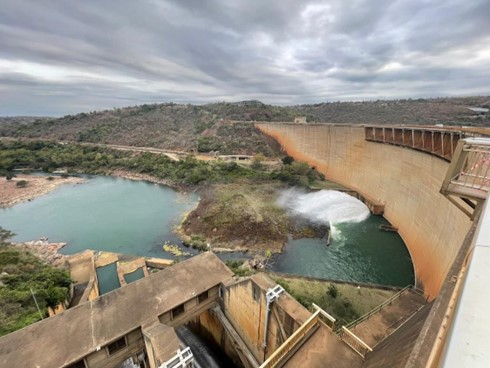
Pictures respectively: Jozini dam, trip with the vans and dinner during load shedding © SUSDEV
As soon as we entered the gates and began driving through the Savannah, it felt like a movie! Seeing the sunset blending with the tree colors while birds were flying felt quite magical. When we arrived at the camping site, we went to our tents, set up our living place for the coming two weeks, and then went for our first dinner at the campsite. Suddenly, the lights went off, and we were in complete darkness! That is how we experienced load shedding. In South Africa couple of times a day, the electricity is gone for a few hours…so turn your flashlights on!
The next day we began our training sessions. We did water research methods training, land training, and interview training. For example, we learned how to measure water quality using different equipment, properly take soil samples, and measure tree height. With the help of the training, we were ready to face the following days of fieldwork.
Getting to work!
Zora led the first day of our ‘real’ fieldwork and data collection on the first day. She was super nervous and anxious and didn’t even sleep well the night before. All of what we had been preparing and searching for finally came to life that day. Danielė, Aitana, and Risse led their group the following days. Every morning, the day started with a little briefing to give a bit of an overview of what we would be doing by the ‘day leader’. For our topic, we had a semi-structured interview as our methodology. So, every day, we assigned one primary interviewer and one secondary interviewer to help us with the body language and facial expression details. The rest of the team would spread around to observe the surrounding environment.
The team would start their journey around 8 AM every day to explore the area and gather insightful information through the interviews. Rubia and Prof. Claudine also assisted us to conduct the interviews. They were incredibly helpful and instead of making us nervous about being supervised, we were really grateful for having them around. Our supervisors sometimes even came up with additional questions to give more insight into the topic.
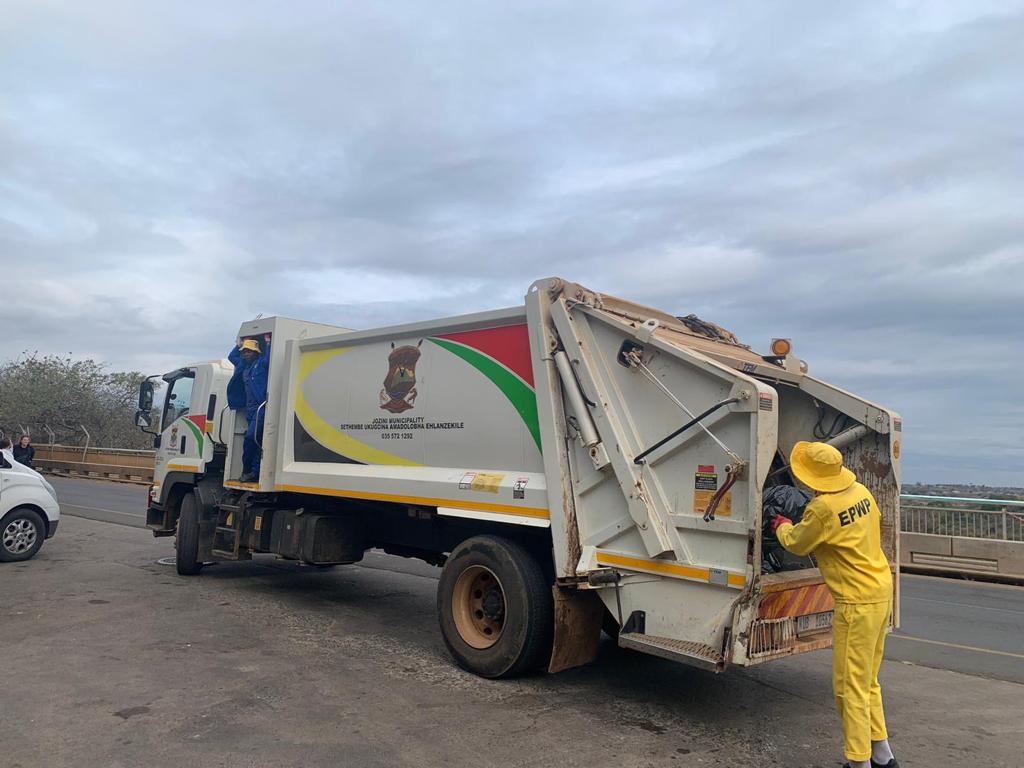
Pictures respectively: Municipality waste collection truck in Jozini; Interview process © SUSDEV
We almost forgot to introduce you to the key to our successful interviews, Mandi, our translator!!! She was more than we could ever ask for! All the groups conducting interviews during the Living Lab were assisted by one translator to help with the language barrier in the field. As for Mandi to us, she was not only helping us with Zulu-English translation, but she also really paved the way for us to find more actors involved in waste management in Ndumo that we had never thought of. Each day, the interviews finished a bit after lunch, so around 3 PM, we were usually already back at the camp and ready to process the data. The first thing to do, which was also the least exciting part: transcribing! The recordings were sometimes hard to understand, and writing the transcript was the best sleeping pill. After finishing the transcript, we did some coding for the content and then freshened up ourselves by taking a shower or even swimming in the little swimming pool in the campsite! Some days, we worked until night to finish the data processing, and with the load shedding, it was a real challenge, but at the same time, quite an experience. There was also one day that we had to work in the middle of a storm with heavy rain all day.
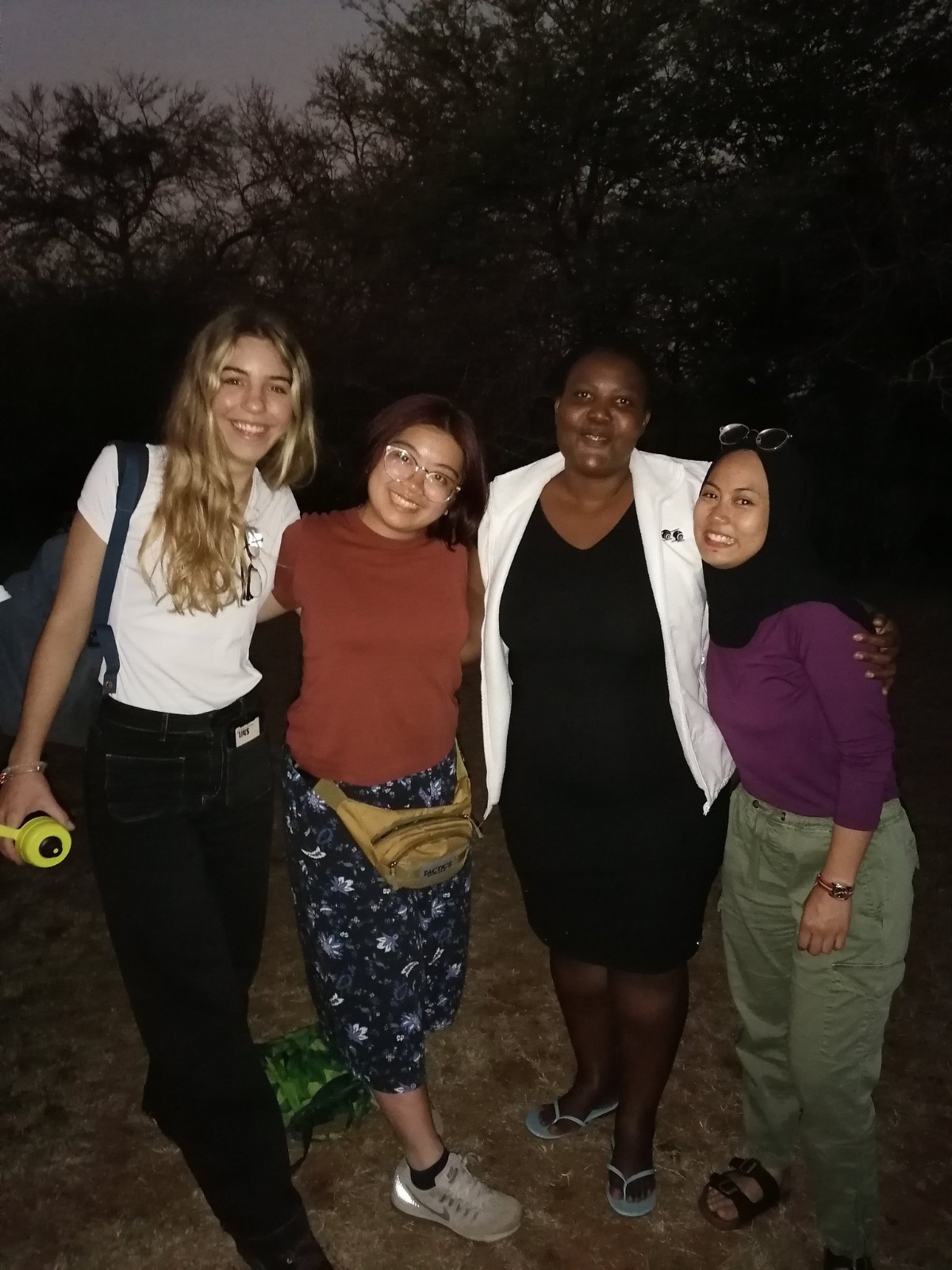
Aitana, Larissa, Mandi and Zora during the last evening © SUSDEV
On the last day of our fieldwork, we got a jackpot! It was Risse’s day, and we had almost covered all the interesting spots around Ndumo when the group was informed that one of the translators for the other group was a member of one of the NGO we had aimed to interview. So, they went all the way to Jozini to interview the organization. In Jozini team also got a chance to eat some “luxury” meals (read: KFC) (#jealousalert) while interviewing the restaurant about their waste treatment practices.
Most of our interviewees were private shop managers/employees or lodge workers. Beyond our expectations, people were very open and gave us many insightful points on the waste management issue in the area. We hope that with all our efforts on the field and later in the data analysis step, as well as people collaboration, will result in a valuable plan and report.
Ending note
Looking back at the beginning of our journey, some of us were excited, and some looked at this research in the wild with a slight fear of the unknown, but days passed, and we enjoyed every minute…Enjoying all the fieldwork, we dreaded it to end. After all the active days driving through the villages, interviewing local people, taking water samples, and identifying trees, we settled for a more familiar working environment – a computer. Even during these less exciting days, we were driven by the curiosity to find the pattern and preliminary conclusions in the interviewees’ answers. We also felt a bit anxious because we knew that we would have to present the preliminary results to the local representatives at the end.
Living Lab was an incredible experience for all of us. We got an opportunity to try ourselves in the field research and get to know other culture and local people. We can honestly say that it was the most amazing trip in our lives! From the bottom of our hearts, we express our gratitude to all professors and supervisors from KU Leuven and fantastic colleagues from NWU. Even though this beautiful experience has ended, it left a mark in all of us, and now we look forward to the next adventure with more open minds.
Thank you!
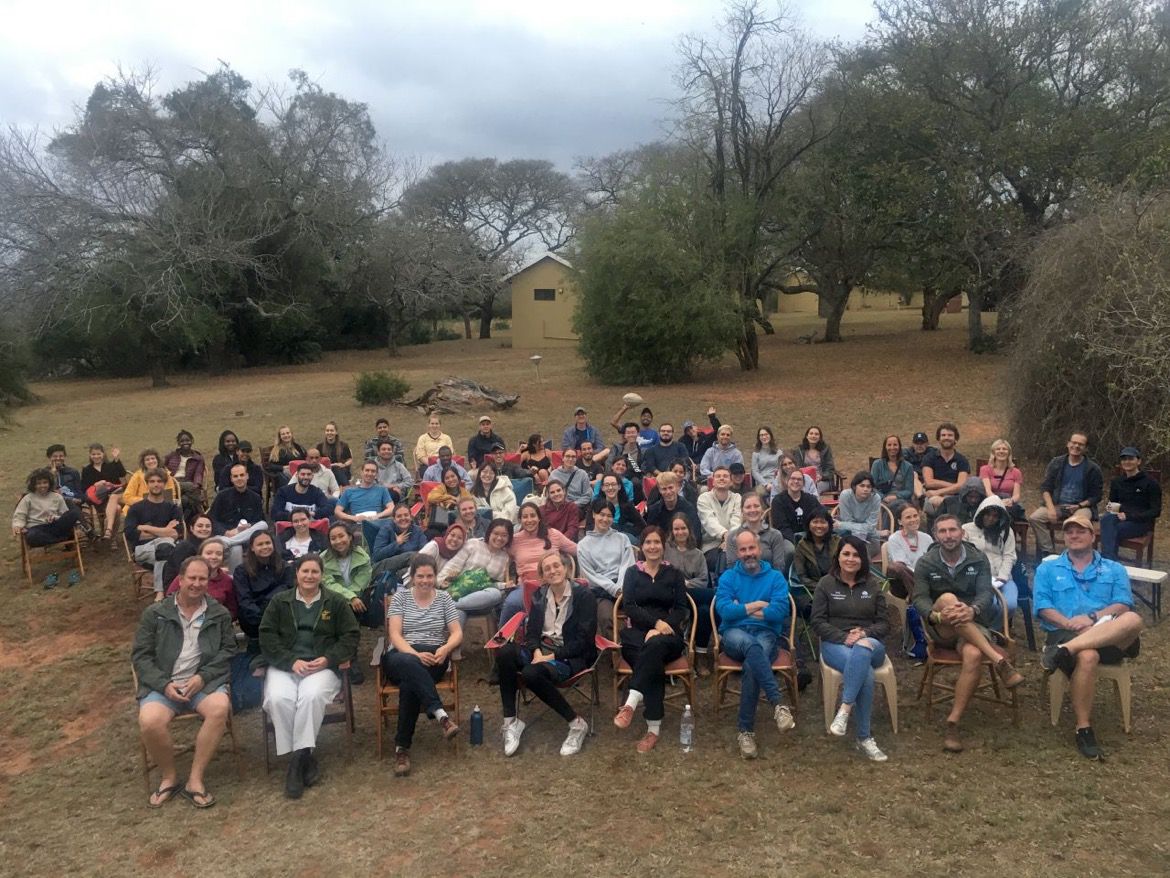
Living Lab participants before one of the lectures © SUSDEV
